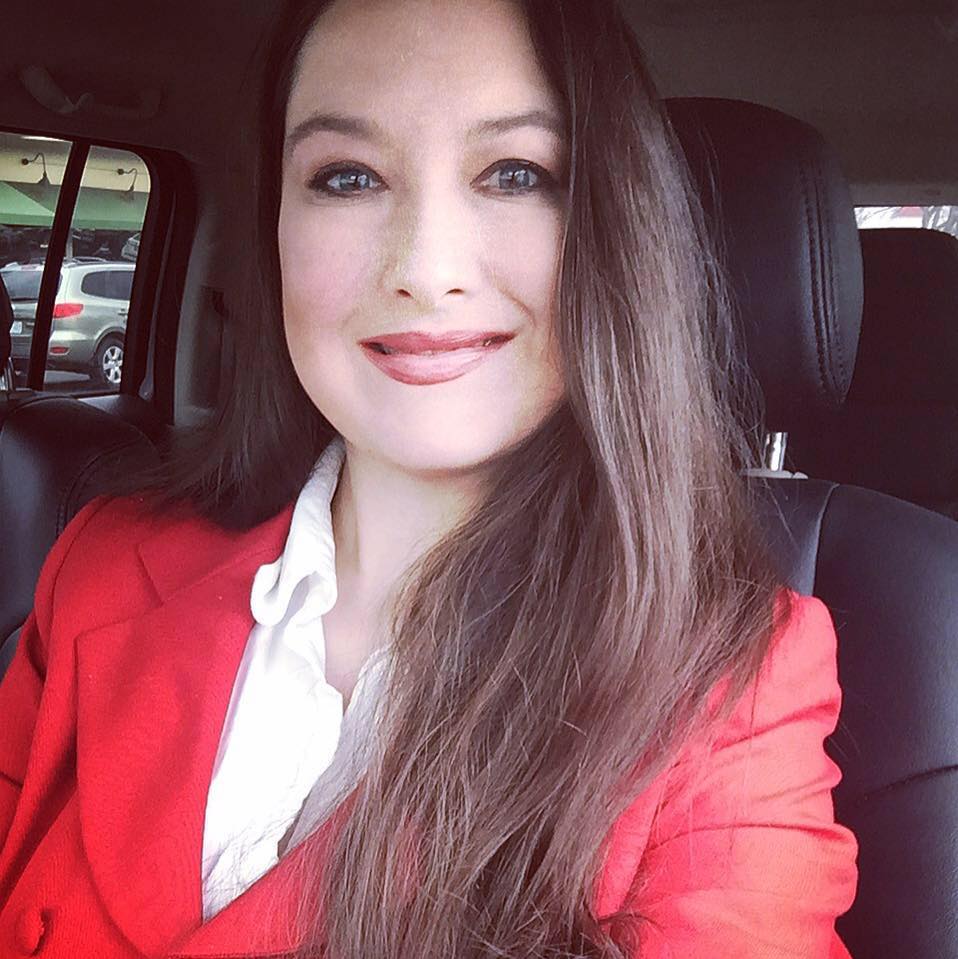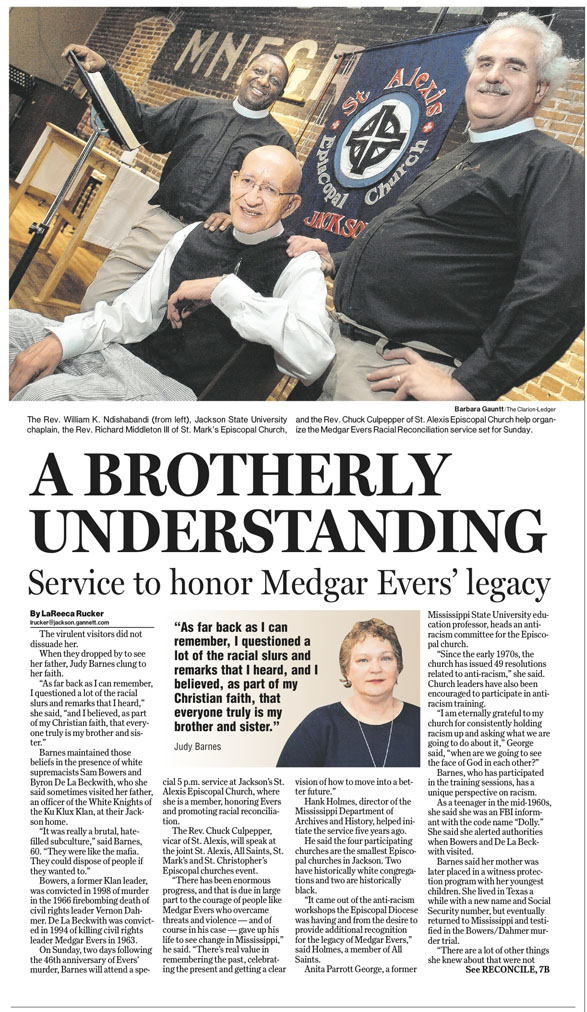A brotherly understanding: Service to honor Medgar Evers' legacy
LaReeca Rucker
The Oxford Eagle
The virulent visitors did not dissuade her. When they dropped by to see her father, Judy Barnes clung to her faith.
"As far back as I can remember, I questioned a lot of the racial slurs and remarks that I heard," she said, "and I believed, as part of my Christian faith, that everyone truly is my brother and sister."
Barnes maintained those beliefs in the presence of white supremacists Sam Bowers and Byron De La Beckwith, who she said sometimes visited her father, an officer of the White Knights of the Ku Klux Klan, at their Jackson home.
"It was really a brutal, hate-filled subculture," said Barnes, 60. "They were like the mafia. They could dispose of people if they wanted to."
Bowers, a former Klan leader, was convicted of murder in 1998 after the 1966 firebombing death of civil rights leader Vernon Dahmer. De La Beckwith was convicted in 1994 of killing civil rights leader Medgar Evers in 1963.
On Sunday, two days following the 46th anniversary of Evers' murder, Barnes will attend a special 5 p.m. service at Jackson's St. Alexis Episcopal Church, where she is a member, honoring Evers and promoting racial reconciliation.
The Rev. Chuck Culpepper, vicar of St. Alexis, will speak at the joint St. Alexis, All Saints, St. Mark's and St. Christopher's Episcopal churches event.
"There has been enormous progress, and that is due in large part to the courage of people like Medgar Evers who overcame threats and violence - and of course in his case - gave up his life to see change in Mississippi," he said. "There's real value in remembering the past, celebrating the present and getting a clear vision of how to move into a better future."
Hank Holmes, director of the Mississippi Department of Archives and History, helped initiate the service five years ago. He said the four participating churches are the smallest Episcopal churches in Jackson. Two have historically white congregations and two are historically black.
"It came out of the anti-racism workshops the Episcopal Diocese was having and from the desire to provide additional recognition for the legacy of Medgar Evers," said Holmes, a member of All Saints.
Anita Parrott George, a former Mississippi State University education professor, heads an anti-racism committee for the Episcopal church.
"Since the early 1970s, the church has issued 49 resolutions related to anti-racism," George said. "Church leaders have also been encouraged to participate in anti-racism training. I am eternally grateful to my church for consistently holding racism up and asking: 'What we are going to do about it? When are we going to see the face of God in each other?'"
Barnes, who has participated in the training sessions, has a unique perspective on racism. As a teenager in the mid-1960s, she said she was an FBI informant with the code name "Dolly," who alerted authorities when Bowers and De La Beckwith visited.
Barnes said her mother was later placed in a witness protection program with her youngest children. She lived in Texas a while with a new name and Social Security number, but eventually returned to Mississippi and testified in the Bowers/Dahmer murder trial.
"There are a lot of other things she knew about that were not actionable crimes because nobody knew the people who had been killed or disappeared," said Barnes, who cut off ties with her father before he died. "I think it was just his underlying feeling of low self-worth and insecurity that drew him to something that made him feel superior to somebody. These were working-class people. There weren't many people they could feel superior to, but they thought they could feel superior to people of another race and wanted to keep them down."
Barnes' mother will be 81 this month and sometimes has trouble remembering the past. Barnes can't forget it. She still recalls "whites only" water fountains, separate waiting rooms for black patients, strictly enforced social codes requiring African Americans to enter and eat in the back of restaurants and the zealous visitors who came calling for her father. But she knows Mississippi will be different for her two biracial grandsons, ages 9 and 5, who have an African-American father.
"I knew I was going to live my life differently, and our openness rubbed off on my children," she said. "They are all very compassionate people. The grace of God and the power of prayer have taken me through a lot of things. I am very gratified to see how far Mississippi has come. It's nothing short of miraculous from what I remember."


